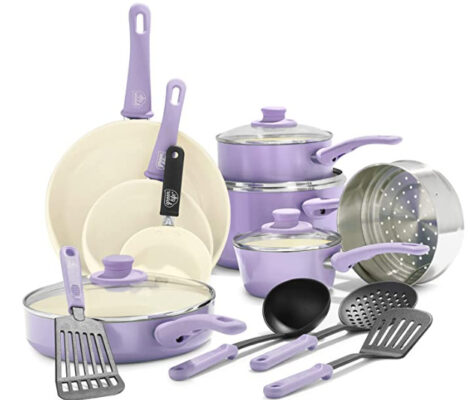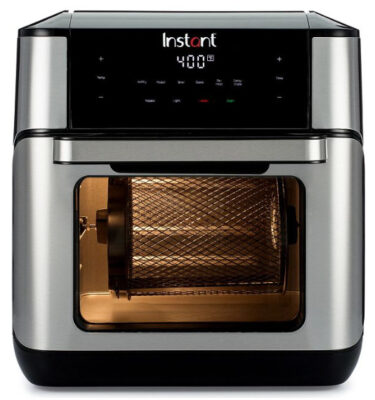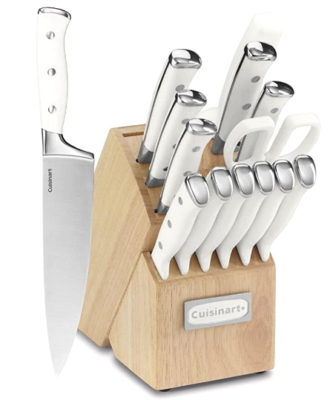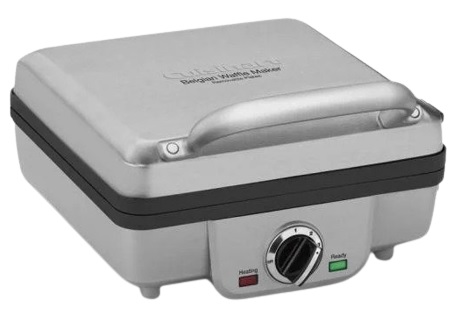The topic of non-toxic kitchen appliances has gained much attention in recent years as people are becoming more aware of the dangers of toxins in traditional kitchen appliances.
This article will discuss the importance of using non-toxic kitchen appliances and how they can impact your overall health.
What are Non-Toxic Kitchen Appliances?
Non-toxic kitchen appliances do not contain harmful chemicals or toxins that can be dangerous when exposed to food or when heated.
These appliances are made from safe and non-toxic materials, such as stainless steel, glass, or ceramic, which do not release harmful toxins into food or the environment.
Non-toxic kitchen appliances aim to reduce exposure to toxic chemicals. Some common examples of non-toxic kitchen appliances include stainless steel cookware, glass food storage containers, and ceramic baking dishes.
These appliances are becoming increasingly popular as people become more conscious about their health and the environment.
The Dangers of Toxins in Traditional Kitchen Appliances
Traditional kitchen appliances often contain toxins, such as heavy metals, phthalates, and bisphenol A (BPA), which can harm our health.
These toxins can leach into our food and beverages and even into the air, which can be inhaled or ingested. This can cause health problems such as cancer, developmental problems, and endocrine disruption.
Toxins in Non-Stick Coatings
One common toxin in traditional kitchen appliances is polytetrafluoroethylene (PTFE), which is used in non-stick coatings. PTFE is a synthetic polymer that is resistant to high temperatures and chemicals.
However, when PTFE is heated to high temperatures, it can release toxic fumes that can harm your health.
Another chemical, perfluorooctanoic acid (PFOA), is used to produce PTFE and is also toxic. Exposure to PFOA has been linked to cancer, reproductive and developmental problems, and thyroid disease.
Toxins in Plastic Components
Another common toxin in traditional kitchen appliances is bisphenol A (BPA), which is used to produce many plastic components.
BPA is a hormone disruptor that can cause hormone-related cancer.
Additionally, plastic components can release other chemicals, such as phthalates, which can harm our health. Phthalates can cause endocrine disruption, developmental problems, and cancer.
The Benefits of Non-Toxic Kitchen Appliances
Non-toxic kitchen appliances often have food-grade materials, improved temperature control, and better cooking performance.
Further, using non-toxic kitchen appliances can provide many health benefits; here are a few:
Reduced Exposure to Toxins
Using non-toxic kitchen appliances can reduce exposure to harmful toxins, such as PFOA, PTFE, BPA, and phthalates.
Traditional kitchen appliances are often made with materials containing chemicals like PFOA and PTFE, which can harm our health when heated or exposed to high temperatures.
Non-toxic kitchen appliances are made with safer materials, such as ceramics and stainless steel, which do not release harmful chemicals into our food or the environment. By reducing our exposure to these toxins, our health and well-being can be improved by miles.
Reduced Carbon Footprint on the Environment
In addition to reducing our exposure to harmful toxins, non-toxic kitchen appliances also help to promote a cleaner and healthier environment.
These appliances are often made with environmentally friendly materials. They are free of harsh chemicals and pollutants, making them a great choice for those looking to reduce their carbon footprint and live a greener lifestyle.
Improved Food Quality
Non-toxic kitchen appliances are designed to cook our food in the healthiest and most nutritious way possible.
For example, ceramics and stainless steel do not alter our food’s taste, texture, or quality, unlike traditional non-stick coatings, which can release harmful chemicals into our food.
In addition, these appliances are also designed to cook our food more evenly, which can help to preserve the nutritional value and flavour of our food.
Thus, using non-toxic kitchen appliances can have a positive impact on our overall health and can also help to prevent long-term health problems and conditions.
Tips for Choosing Non-Toxic Kitchen Appliances
If you want to switch to non-toxic kitchen appliances, it is important to know what to look for when purchasing. The following tips can help you make informed decisions and choose the right appliances for your kitchen:
- Look for ceramic, stainless steel, or glass appliances, as these materials are considered safe and free from harmful chemicals. Additionally, look for appliances free from PFOA, PTFE, and BPA.
- Avoid appliances made with plastic components.
- Consider the heat resistance of the appliance. Ensure the appliance can withstand high temperatures and does not release harmful chemicals into your food when heated.
- Check for certifications and third-party testing. Look for appliances certified by reputable organizations, such as the Environmental Protection Agency (EPA) or the European Commission (EC).
- Consider the quality and durability of the appliance. Make sure that you invest in high-quality appliances that are built to last.
By following these tips, you can make informed purchasing decisions and choose non-toxic kitchen appliances that are safe, healthy, and high-quality.
Best Non-Toxic Kitchen Appliances




Conclusion
In conclusion, the importance of non-toxic kitchen appliances for health cannot be overstated and should be considered in all purchasing decisions.
